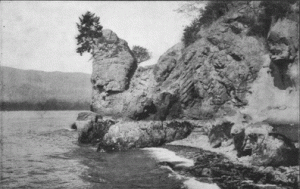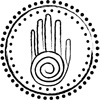kirk/mod3
http://digital.library.upenn.edu/women/johnson/vancouver/vancouver.html#ch-07
This website has a great collection of First Nations legends about Vancouver. I have not had the chance to read them all yet. This is another way of preserving our legends and using technology to share those legends. Traditionally it would be an Elder sharing this legends. This legends were recorded in 1906. It brings to mind some of our readings and was this another form of cultural appropriation?
November 1, 2010 No Comments
Kirk/mod3
Indian Residential Schools in Canada the painful legacy video.
https://www.youtube.com/watch?v=_4-TYwFS-P0
This is a very powerful and moving video of stills. It made me think about my Grandparents who both attending residential school. I will let the video speak for itself.
November 1, 2010 No Comments
Kirk/Mod3
 One of the main principles of the Union of British Columbia Indian Chiefs is that, despite our differences, we will be stronger if we work together. The goal of the UBCIC is to support the work of our people, whether at the community, nation or international level, in our common fight for the recognition of our aboriginal rights and respect for our cultures and societies. Their goal, the goal of the people, has been to give the aboriginal people of BC a voice strong enough to be heard in every corner of the world. They continue, to carry out this mission in a number of different ways.
One of the main principles of the Union of British Columbia Indian Chiefs is that, despite our differences, we will be stronger if we work together. The goal of the UBCIC is to support the work of our people, whether at the community, nation or international level, in our common fight for the recognition of our aboriginal rights and respect for our cultures and societies. Their goal, the goal of the people, has been to give the aboriginal people of BC a voice strong enough to be heard in every corner of the world. They continue, to carry out this mission in a number of different ways.
Another major principle behind their organization is the belief that knowledge is power. they are dedicated to information-sharing as well as to the fostering of fundamental and necessary research skills for Indian people in the province.
November 1, 2010 No Comments
Decolonizing Mi’kmaw education through cultural practical knowledge
Written in the McGill Journal of Education, Fall 2002 by Jeff Orr, John Jerome Paul, Sharon Paul
http://findarticles.com/p/articles/mi_qa3965/is_200210/ai_n9087613/pg_5/?tag=content;col1
This article discusses how three educators from a Mi’kmaw background in Nova Scotia are trying to decolonize the European school system by bringing awareness and indigeonous knowledge to the students. Decolonization through Aboriginal ‘cultural practical knowledge’ which is dessiminated through the school system is the focus of this story. These women are attempting to highlight aboriginal knowledge and bring attention to the decolonizaton movement.
“Many educators agree that [the] honoring of Aboriginal cultural knowledge is one of the most significant ways schools can be more responsive to Aboriginal students’ needs”
October 31, 2010 No Comments
Intellectual and Cultural Property Rights of Indigenous and Tribal Peoples in Asia
http://www.unhcr.org/refworld/pdfid/469cbf970.pdf
By Michael A. Bengwayan for the Minority Rights Group International (MRG).
This book examines the threat that indigenous people in Asia face on a daily basis – loss of land, resources and reserves. Another threat is to their collective knowledge. Multinational companies are commercializing their cultural practices and images for resale and the tourism industry. This document discusses the protection of indigenous rights at the UN/international level. This article identifies the gaps between international discussions and the local/regional level issues. It highlights the struggles of Asian people in protecting their intellectual property rights. It provides clear case examples from all over Asia.
October 31, 2010 No Comments
Traditional Knowledge and Intellectual Property: A Handbook on Issues and Options for Traditional Knowledge Holders in Protecting their Intellectual Property and Maintaining Biological Diversity
Authors: Stephen A. Hansen and Justin W. VanFleet for the American Association for the Advancement of Science (AAAS) Science and Human Rights Program
http://shr.aaas.org/tek/handbook/handbook.pdf
This book examines the definition of intellectual property rights and traditional knowledge. It reviews the protection rights of knowledge holders and delves into registries, patents, informed consent and case examples. This book provides a good guideline for any researcher who is about to undertake studies amongst aboriginal peoples.
October 31, 2010 No Comments
Indigenous Knowledge Systems and Intellectual Property Rights: an Enabling Tool for Development with Identity
http://www.ifad.org/english/indigenous/pub/documents/Indigeknowledge.pdf
This paper reviews how indigenous knowledge can be used to document imperative information, like botanical records, without loosing community ownership of the knowledge.“In 2003-2004, an ethnobotanical documentation project was conducted in the Subanencommunity in Lakewood, Zamboanga del Sur, western Mindanao in the Philippines”. The indigenous peoples recognized that their knowledge was at risk for being lost. This paper describes how delicate information was handled with cultural sensitivity. There was a multi-disciplinary approach which included the local indigenous tribal experts. This paper is a good example of collaboration with the local indigenous peoples.
October 31, 2010 No Comments
Minwaashin’s Blog
The Aboriginal Women’s Support Centre
The Role of Art in Decolonization and Healing from History
I thought this blog brought about an interesting concept – that of art helping to educate and heal . This little article tells how a dozen aboriginal artists made the trek to Paris to open an art Paris/Ojibwa exhibit. The author tells how the artist “…has deconstructed history in order to bring integrity, honour and healing from what he terms, “the ravenous gaze of pending disappearance.”. The author explains how history has been ‘rewritten’ an an effort to bring about public awareness and recovery. A large part of decolonization is public awareness and personal knowledge – which this exhibit will offer to everyone.
For further picutres on this exhibit please see http://www.minlodge.com/admin/library/ParisOjibwa%20article.pdf
October 31, 2010 No Comments
The Freire Project
The Freire Project The Paulo and Nita Freire International Project for Critical Pedagogy
If there is something that I have learned from this course, it is that things need to change in the classroom in order for Aboriginal students to succeed. Many of us may have learned a little about Paulo Freire and his philophies of teaching. For those who appreciate his ideas or would like to learn more, this site offers valuable resources. Besides a space to communicate with other like minded individuals, there is also FREE access to the International Journal of Critical Pedagogy and it appears to be a journal that would benefit from the contributions of caring, thoughtful, hardworking, and interesting teachers like the ones I have met in this course. There is also a link to the Open Journal Systems for access to other no-cost journals.
October 31, 2010 No Comments
Indian Country Today
It’s important to keep up to date on current Indigenous issues and events and Indian Country Today is a great resource with which to to do that. The major focus is on national (American) stories in the U.S., however, there is coverage of global issues as well. The top Canadian story: “Government kills abalone project” in Bamfield, B.C.
I feel sometimes I get overwhelmed with the seemingly limitless amount of information on the web, so having a resource like this one to trust to keep track of things as they happen is somehow a relief.
October 30, 2010 No Comments


